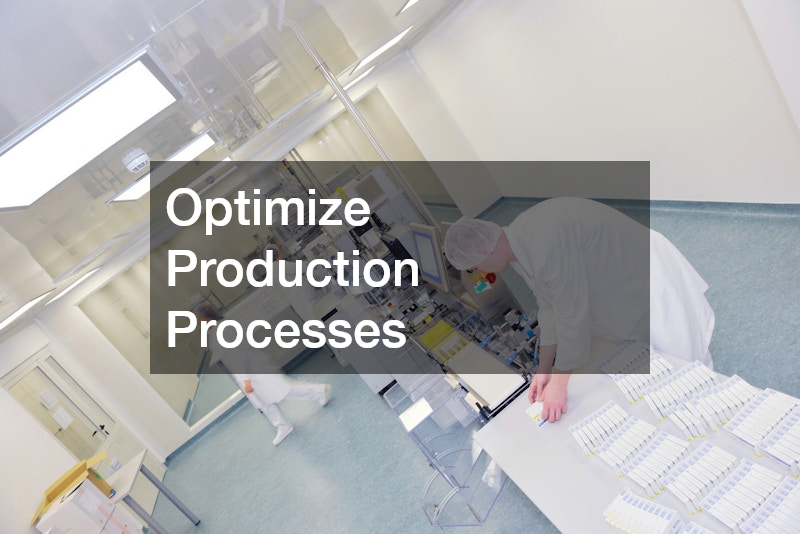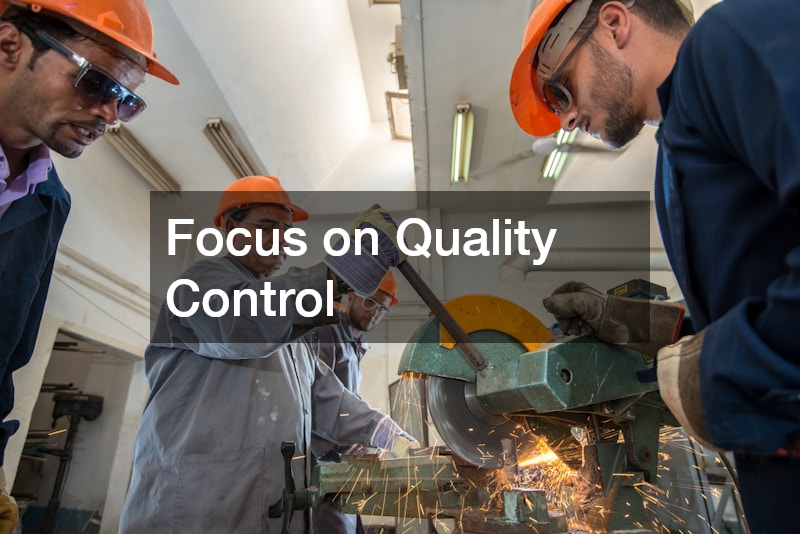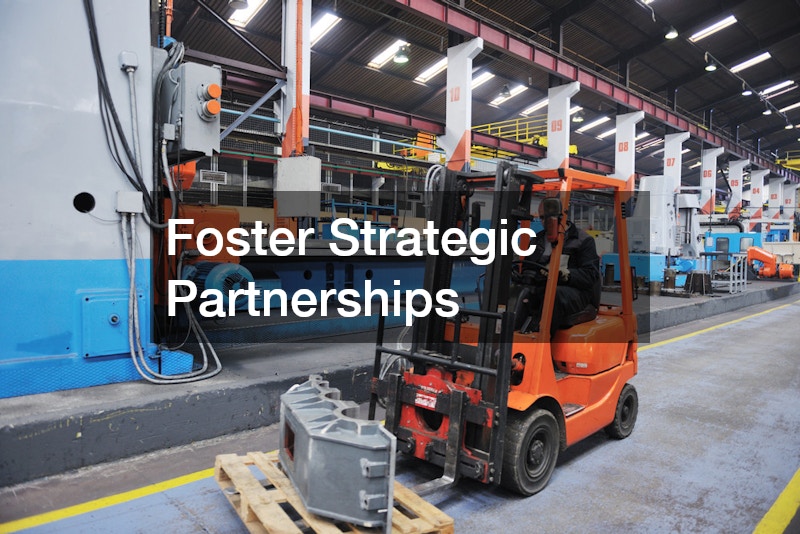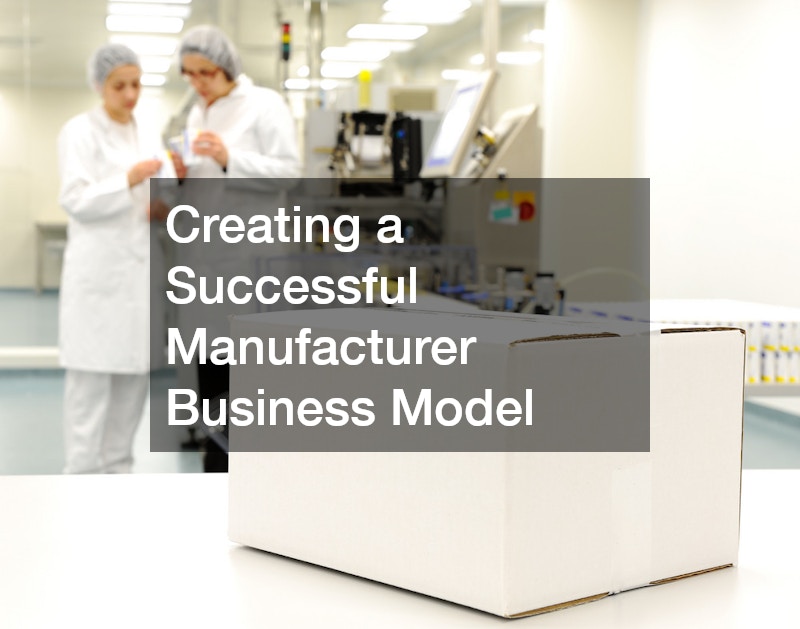In the competitive world of manufacturing, establishing a successful business model is crucial for sustainability and growth. This article explores the key components and strategies necessary for building a robust manufacturer business model. We will delve into various facets such as defining your value proposition, optimizing production processes, and leveraging technology, ensuring a comprehensive approach to your business success.

Define Your Value Proposition
Defining your value proposition is fundamental to setting your manufacturer business model apart from competitors. It involves clearly identifying what makes your products or services unique and how they benefit your customers. Focusing on a strong value proposition allows manufacturers to leverage specific strengths and capture market opportunities.
In the realm of manufacturing, the value proposition encompasses quality, efficiency, and customer service. High standards in these areas ensure repeat business and referrals, contributing to long-term success. Articulating these elements concretely will resonate with your target market, showcasing the unique offerings of your business.
A well-defined value proposition also supports marketing efforts and enhances brand recognition. It provides a clear message to prospective customers about what differentiates your products from others. Establishing this clarity can aid in more effective sales strategies and improved customer engagement.
Identify Target Market
Identifying the target market is a crucial step in developing a successful manufacturer business model. Understanding who your primary customers are allows for tailoring products and services to meet their specific needs. Analyzing demographics, preferences, and purchasing behavior can provide valuable insights for your business.
Market research tools and industry analysis are essential in gaining a deeper understanding of the target segment. Utilizing these tools can help narrow down the most viable markets for your offerings. By doing so, manufacturers can direct resources more efficiently, avoiding wasted efforts and increasing profitability.
Engaging directly with potential customers can further refine the understanding of your target market. Feedback mechanisms, surveys, and focus groups are great ways to gather information. This knowledge will enable your manufacturer business model to respond dynamically to market demands and trends.
Develop a Competitive Advantage
Developing a competitive advantage is pivotal in maintaining a leadership position within the manufacturing industry. Specializing in custom lifting solutions, for example, can provide a significant edge over competitors. By offering unique solutions, you can cater to niche markets that require specialized expertise.
Parcel contract auditing is another area where manufacturing businesses can distinguish themselves. Ensuring cost-effectiveness and accuracy in logistics improves customer satisfaction and reduces operational expenses. This service element can become a trademark for your business, creating a formidable competitive advantage.
Continuously enhancing production processes and maintaining high-quality standards will further strengthen the competitive advantage. Innovating and staying ahead of market trends are essential strategies for sustainable business growth. This approach encourages continuous improvement, resilience, and adaptability in the business environment.

Optimize Production Processes
Optimizing production processes is integral to increasing efficiency and reducing costs in manufacturing. The implementation of custom lifting solutions can significantly enhance operational workflow and safety. Such improvements lead to increased productivity and reduced downtime.
Analyzing current processes and identifying bottlenecks will provide insight into necessary changes. Techniques such as Lean Manufacturing and Six Sigma can streamline production, enhancing overall operational efficiency. By applying these methodologies, manufacturing businesses will achieve faster turnaround times and improved output quality.
Investing in advanced technology and equipment is another avenue for process optimization. Updates in machinery and automation can have immediate effects, improving speed and precision. Emphasizing continuous process evaluation ensures that your business remains competitive and innovative in an ever-evolving industry landscape.
Create a Strong Supply Chain
A strong supply chain is essential for the seamless operation of a manufacturer business model. It requires the development of reliable supplier relationships and efficient logistics management. The ability to make organizational changes that enhance supply chain processes is crucial.
Establishing a resilient supply chain allows for the prompt fulfillment of customer orders, even in the face of disruptions. This reliability minimizes supply disruptions and maintains consistently high service levels. Proper supply chain management supports your business’s reputation and customer satisfaction rates.
Collaboration with suppliers can lead to shared benefits, such as cost reductions and improved quality. Establishing long-term partnerships nurtures trust and encourages mutual growth. Ultimately, a strong supply chain strongly positions your manufacturing business to meet demand effectively and efficiently.
Establish a Pricing Strategy
Developing an effective pricing strategy is essential for profitability and market competitiveness. Determining the right price point involves analyzing production costs, competitor pricing, and customer value perception. This strategic approach ensures that you remain attractive to customers while maintaining healthy profit margins.
Dynamic pricing strategies can provide flexibility as market conditions change. Innovative approaches, such as value-based pricing or tiered pricing models, can maximize revenue opportunities. Implementing these strategies in your business can lead to improved customer acquisition and retention.
Regularly reviewing and updating pricing strategies is vital for continued success. Changes in costs, consumer behavior, and economic conditions require adaptive strategies. A proactive approach to pricing can safeguard your business’s market position and long-term profitability.

Focus on Quality Control
Quality control is a cornerstone of a successful manufacturer business model. Implementing robust quality assurance measures ensures that products consistently meet or exceed industry standards. Utilizing a laboratory water bath is one method to maintain product specifications and quality.
Regular quality audits and inspections can identify potential issues before they affect production. This proactive stance saves costs associated with rework and scrap, improving overall efficiency. Quality excellence can be a differentiating factor that strengthens customer loyalty.
Investing in continuous training for quality control staff enhances their ability to maintain high standards. As technology and processes evolve, staying updated on quality control techniques is crucial. This commitment to quality cultivates a trustworthy brand image for your business in the market.
Hire Truck Drivers
Efficient logistics and transportation are vital in supporting a manufacturer business model. Hiring skilled truck drivers familiar with semi truck driveshaft operations ensures the timely delivery of goods. These capabilities enhance the operational capacity of your business, ensuring on-time shipments.
Truck drivers play a critical role in the distribution process, directly affecting customer satisfaction levels. Ensuring that your team is adequately trained and equipped for maintenance and driving increases reliability. This aspect contributes to establishing a competitive edge in distribution logistics.
Providing ongoing support and incentives for truck drivers fosters their long-term commitment. Reliable transportation reduces the risk of delays and damages and the need to contact a towing service, which is essential for keeping customer promises. A steadfast driver team reflects positively on your business’s operational integrity.
Leverage Technology and Automation
Leveraging technology and automation is crucial in modernizing manufacturing processes. Investing in trailer rental options and automated machinery can significantly enhance production capacity. Such innovations facilitate the handling of larger orders in your business while maintaining quality.
Incorporating digital solutions, such as AI and IoT, enhances operational transparency and decision-making. These technologies enable real-time monitoring of production lines, leading to faster identification of issues. By embracing technology, you can adapt to the rapid advancements in the manufacturing industry.
Automation also promotes safety and reduces human error, increasing workplace efficiency. Employees can focus on more strategic tasks while automated systems manage repetitive operations. This shift optimizes resource allocation, driving better overall performance.

Build a Skilled Workforce
A skilled workforce is instrumental in ensuring operational excellence in a manufacturer business model. Offering continuous training and development opportunities to staff enhances their capabilities and motivation. A well-trained team is better equipped to handle advanced manufacturing techniques.
Recruiting talent with the right expertise ensures the smooth implementation of new processes and technologies. Providing competitive compensation packages attracts skilled professionals, bolstering your business’s competitive advantage. Skilled personnel contribute to the innovative and productive culture needed for success.
Cultivating a work environment that emphasizes teamwork and open communication further enhances workforce engagement. This atmosphere fosters creativity and problem-solving, which are vital in the fast-paced manufacturing industry. A cohesive team represents the backbone of a successful business, ready to meet challenges head-on.
Ensure Regulatory Compliance
Regulatory compliance is a non-negotiable aspect of creating a successful manufacturer business model. Adhering to industry standards and government regulations avoids costly penalties and legal issues. Implementing compliant practices ensures your business operates within legal and environmental boundaries.
Understanding specifics, such as handling carbon steel pipe fittings correctly, ensures adherence to safety protocols. Staying informed on regulatory changes and engaging in continuous education are imperative practices. This vigilance prolongs the credibility and sustainability of your business.
Regular audits and compliance checks mitigate risks associated with non-compliance. These processes highlight areas needing improvement, contributing to a safer and more efficient operation. Compliance confirms your dedication to ethical and responsible manufacturing practices.
Develop a Robust Distribution Network
Building a robust distribution network is key to ensuring the broad reach of your products. Efficient distribution channels enable timely product delivery and enhance customer satisfaction. Collaborating with reliable logistics partners can fortify your business’s distribution network.
Strategically planning distribution routes and leveraging local resources can improve delivery efficiency. Reducing transportation costs while maximizing coverage supports improved profit margins within your business. These benefits reinforce your market presence and strengthen customer relationships.
Innovative solutions, such as utilizing digital tracking systems, further enhance distribution management. These technologies improve visibility and coordination across distribution processes. A sustainable distribution network enables your business to meet diverse and evolving customer needs.

Foster Strategic Partnerships
Strategic partnerships are invaluable for the growth and development of your manufacturer business model. Allies in the industry can provide insights, resources, and opportunities beyond the scope of your organization. Carefully evaluating and selecting partners ensures alignment with your goals.
Understanding the dynamics of bank vs credit union auto loan options can enhance financial strategy partnerships. Such partnerships can improve financial flexibility and enable business expansion initiatives. Collaboration brings mutual benefits, potentially leading to innovative product development.
Engaging with partners who share a commitment to your core values strengthens your business relationships. Trustworthy partnerships foster shared successes, improve market positioning, and drive growth for your business. These alliances fortify your efforts, propelling your brand into a sustainable future.
Monitor Financial Performance
Monitoring financial performance is critical in understanding a business’s health. Regular assessment of key financial indicators offers insights into profitability and financial sustainability. Utilizing financial management tools can streamline monitoring processes within your business.
Performance metrics, such as cost management and revenue analysis, highlight growth opportunities and potential risks. This information guides strategic decisions and resource allocations, maintaining financial stability. A well-documented financial strategy is foundational for the long-term success of your business.
Ensuring comprehensive financial transparency fosters trust among stakeholders and investors. Reliable financial data supports informed decision-making and strengthens the credibility of your business. Effective financial management is integral to achieving enduring commercial success.
Consider Sustainability
Sustainability is becoming increasingly important in a manufacturer business model, as consumers and governments demand eco-friendly practices. Implementing catalyst recycling initiatives can help minimize environmental impact and support resource conservation. These actions reflect positively on your commitment to sustainability.
Emphasizing sustainable practices can open new market opportunities and improve brand reputation. Eco-conscious customers are more likely to engage with manufacturers demonstrating environmental responsibility. Prioritizing sustainability in your business can also lead to operational efficiencies and cost savings.
Developing a comprehensive sustainability strategy ensures your manufacturing processes align with global initiatives. This focus on long-term environmental health contributes to a strong market presence and competitive advantage. A sustainable approach ultimately positions your business as a leader in responsible manufacturing practices.
Building a successful manufacturer business model involves a comprehensive approach encompassing market analysis, product development, process optimization, financial planning, and effective team and customer management. By addressing these essential elements and navigating challenges, manufacturers can achieve sustained success and growth. Your manufacturing business can thrive in a competitive marketplace with commitment, strategic planning, and innovation.
